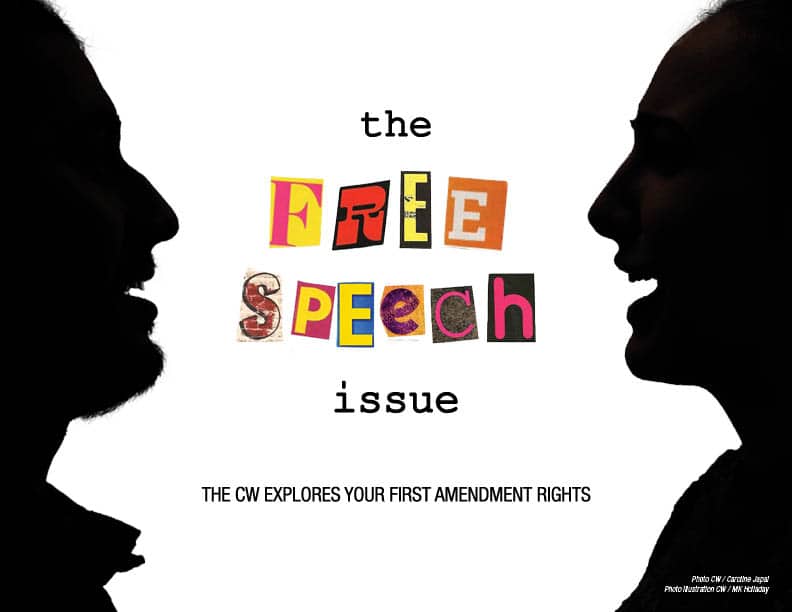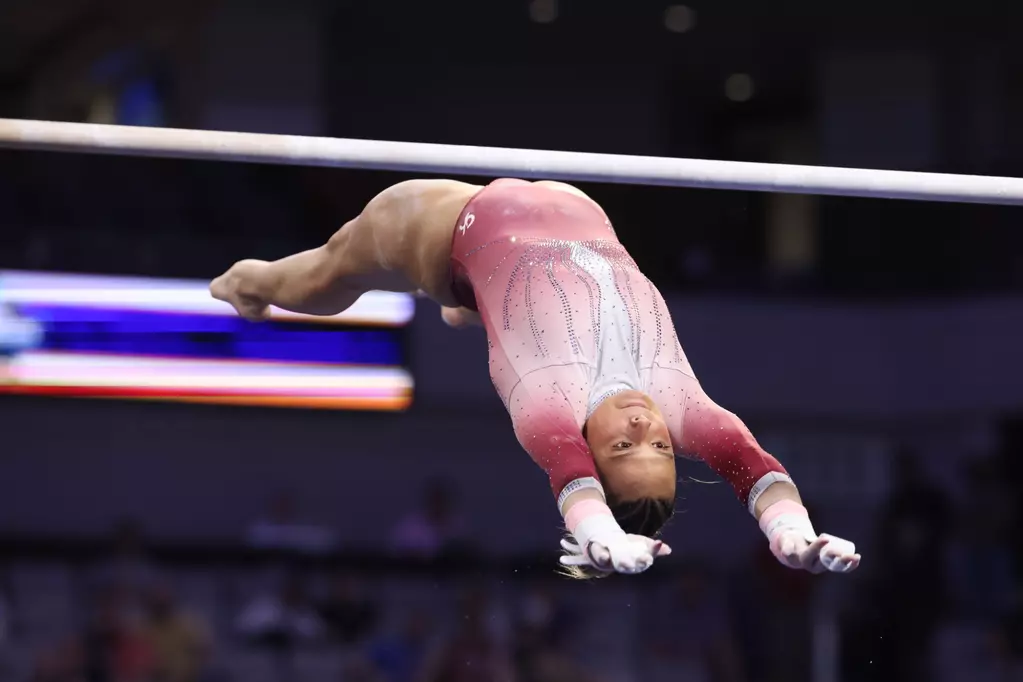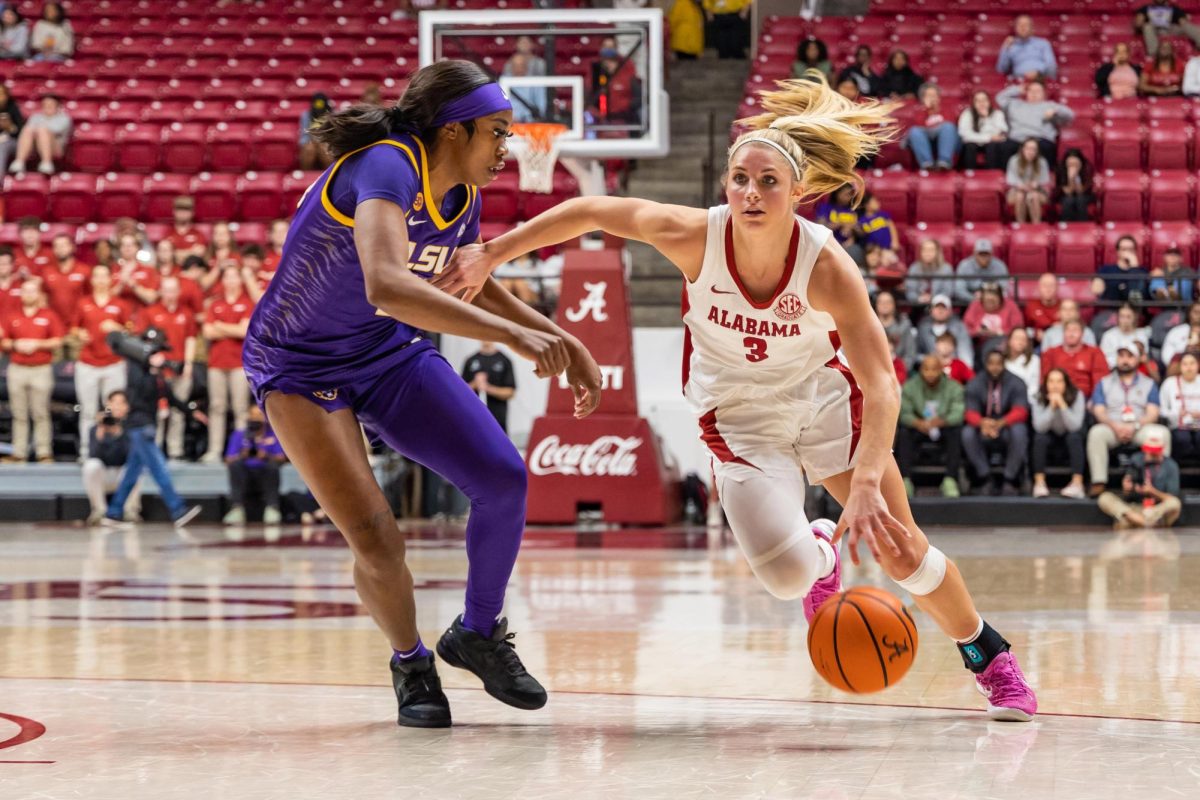Athletes at The University of Alabama are consistently in the spotlight and being approached by news outlets for interviews. Though they are asked to speak often, it is unclear if student athletes have the same rights to free speech as those not in the spotlight.
To speak to an athlete, one must first contact an assistant athletics director in charge of communications for their team. After a meeting is set, that director sits in with the athletes to make sure all questions are fair and appropriate. Josh Maxson, assistant athletics director in charge of football communications, is insistent on making sure nothing is misunderstood when it comes to free speech and student athletes.
“We don’t regulate free speech in any way, but it’s important that team matters stay within the team,” Maxson said.
This statement is supported by athletes of different teams including Bradley Bozeman, Damien Harris, Mia Nonnenberg and Kiana Winston.
Bozeman, a fifth-year senior earning his masters in exercise science, feels there is no hindrance of free speech for him or his teammates.
“We can have our own opinions,” Bozeman said. “We can post on social media.”
All athletes have expressed that they can post on social media and that they have the right to express how they feel. Athletes said their gratitude to the University is best expressed through representing the University in the best way they can. This includes taking responsibility for what they say, showing their actions reflect what it means to be a part of The University of Alabama and their team. Athletes have said they do not feel like their rights are being taken away from them.
Damien Harris, a junior majoring in communication studies and a running back for the Crimson Tide, believes there is a time and place to voice one’s opinion.
“You have the constitutional right, but I never want to put a negative light on me or the team or the University,” Harris said.
In times when free speech is called into question nationally – such as the NFL kneeling debate – Harris said things in the outside world do not apply to the team. When the news was reported on the kneeling controversy, the team discussed it together.
“Saban said everyone is entitled to their opinion,” Harris said.
Saban has discussed kneeling and free speech in press conferences.
“I respect everyone’s rights not to be censored in terms of the way they express their beliefs,” Saban said earlier this fall.
Maxson agreed with Harris, saying the coaches told the players they have their rights.
The Crimson Tide does not stand on the field for the national anthem.
Kiana Winston, a senior majoring in psychology, is an All-American gymnast and said she is content with the way things are run. Athletes, including Winston, feel coaches and communications staff are better equipped to talk about crises and controversies such as injuries or disciplinary actions.
“I want to show who I am while not downing the University,” Winston said. “I support the system handling those types of things.”
Winston even quoted one of her coaches, Dana Duckworth’s, famous sayings, “Life is a full-time interview.”
“You never know who is listening behind you in a coffee line or anywhere else,” Winston said.
Mia Nonnenberg, a senior majoring in psychology, is the team captain for the women’s swim and dive team. Nonnenberg also stands behind the importance of one’s duty to represent themselves and their school in the best way.
“There’s never any hindrances [to free speech], but representing your school puts you at a higher standard,” Nonnenberg said. “We are encouraged to express ourselves.”
Nonnenberg also expressed that in times of crisis or controversy, she feels more comfortable having the communications staff speak on behalf of the team.
“If we want to speak in times of crisis, I don’t think anyone would try to stop us,” Nonnenberg said.
All interviews conducted were done so with a communications staff members present. Athletes are required to have a communications representative present during most interviews.









